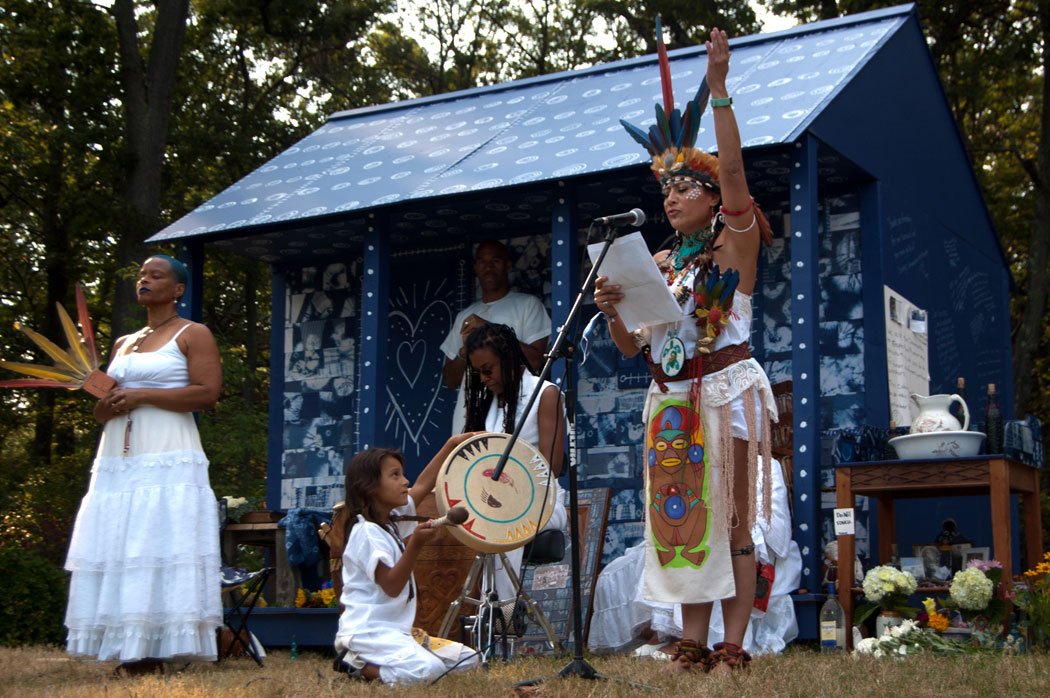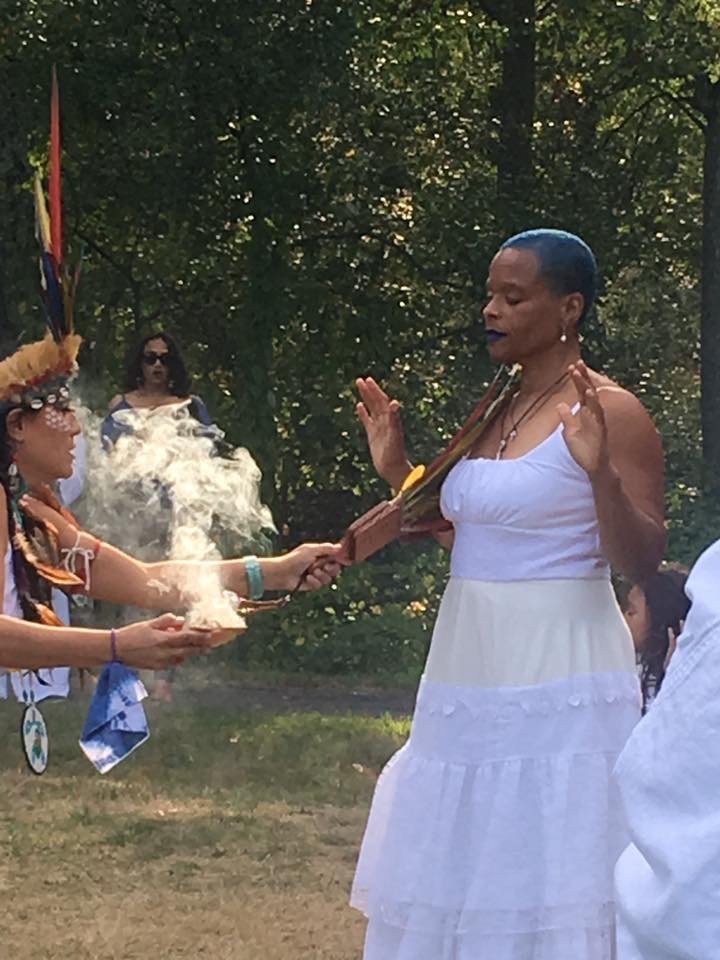Ancestor Slave Cabins
Ancestor Slave Cabins are life-sized replicas of slave cabins from the antebellum South erected in public spaces. Produced with community involvement, the cabins serve as vessels, spiritual dwellings, resting places for the spirits of enslaved ancestors. The indigo cabins are monuments to the enslaved. Visitors are encouraged to write messages to their own ancestors on the Cabin’s exterior. This assemblage of activities builds a practice of community-based connection that cultivates an understanding of the ways the American slave trade formed our collective self-image, and provides a portal for change. As community members take part in art-making, organic conversations arise, which in turn facilitates risk-taking, personal growth, and healing.






The First Ancestor Slave Cabin
The first iteration of the Ancestor Slave Cabin was unveiled at Medicine Wheel Productions' Spoke Gallery, South Boston, MA, September-November 2013. The exhibition was multi-dimensional in scope which included, ceramic and wooden sculpture, drawings, tapestries, hand made dolls, text from my book The Slave Narratives of Willie Mae, and a community ancestor activation ritual held inside of the gallery.
This cabin served as a living testament honoring Africans/African Americans who lived and died in chattel slavery in The American South. Through this installation, I explored the “shared” history of enslavement that remains a minefield of suffering as well as love. Communities are in need of the true painful history of enslavement only then can we bring forth relief from generations of pain, and begin the work of healing the suffering and injustice that continues to separate and haunt us.
The Second Ancestor Slave Cabin
The 2nd Ancestor Slave Cabin was in collaboration with the 2015 Franklin Park Art Grove, funded by the New England Foundation for the Arts and presented by the the Franklin Park Coalition. Franklin Park, "the largest park and crowning jewel of Frederick Law Olmsted's achievements in Boston" is located at the nexus of Boston's Roxbury, Dorchester, and Jamaica Plain neighborhoods. The cabin was created with community involvement, members of the public are always invited to write personal narratives directly on indigo-blue painted sections of the cabin.
The Third Ancestor Slave Cabin
The 3rd Ancestor Slave Cabin was installed as part of the 2016 North Charleston Arts Festival, North Charleston, South Carolina.
"A pre-festival event, contemporary artist Ife Franklin highlights the importance of slave dwellings with a life-size replica of a slave cabin.
"The cabin, painted indigo in honor of the indigo the enslaved produced, draws attention to the ancestry of the enslaved, their cultural traditions and practices. After a performance of “The Slave Narrative of Willie Mae” in which Franklin calls upon the spirit of her ancestors, the community is invited to write their own messages on the cabin structure to communicate with the souls, spirits and kindred of ancestor slaves.
"Interactive and powerful, this exhibit turns our attention to an important part of local and national history."
The Fourth Ancestor Slave Cabin
The 4th Ancestor Slave Cabin erected in Franklin Park, Boston MA in the Fall of 2017 was public event that not only featured the unveiling of the cabin as an altar, this event also featured community Ring Shout and picnic.
This project was funded by the New England Foundation for the Arts (NEFA) Creative City grant program. Creative City is funded by the Barr Foundation, with support from the Boston Foundation.















